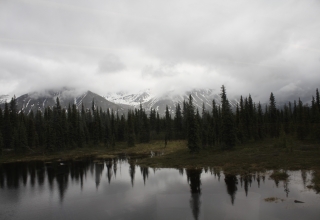
. . . a chemical called adenosine is building up in your brain [as you become sleepy]. It will continue to increase in concentration with every waking minute that elapses. The longer you are awake, the more adenosine will accumulate. Think of adenosine as a chemical barometer that continuously registers the amount of elapsed time since you woke up this morning.
If we can reintroduce our own metaphor, adenosine is a clock that signals how many hours (or days) since the band last played. The crowd begins to line up at the door waiting to enter and hear the band. Or the crowd, now inside, grows restless waiting for the band to start or come off its break. Biologically, this is known as an increase in sleep pressure. We all know what this sleep pressure feels like—it is that increasing demand of our body and brain to fall asleep. Many of the pathways to sleep we will be identifying in this project help to either stimulate this pressure or respond to the pressure once it builds up.
There we have it: the circadian clock and melatonin provide us with the band and the tune, while the chemical adenosine is building up and demanding that the sleepy time tune be played. Officially, the circadian clock and the melatonin produce what is known as Process-C, while adenosine produces something called Process-S. When the two processes meet, we get sleep; but as the night goes on the circadian clock will produce variations in level of sleep (the sleep stages I identified earlier) while adenosine is gradually expended. By the end of the night and the first burst of sunshine, there is very little sleep pressure, and we are ready to gain consciousness once again (or at least that is what is supposed to happen if we get high quality, non-fragmented and interrupted sleep).
Conclusions
Hopefully, this is enough information about sleep for us to get started on identification of pathways to sleep. As you have already seen, there is a wonderful book about sleep that provides detailed, up-to-date information about sleep. This book is Matthew Walker’s Why We Sleep. We would also recommend the Teaching Company lecture course called Secrets of Sleep Science presented by H. Craig Heller. We have made use of this lecture series, as well as the Walker book, in preparing this brief introduction. There is much more to come—an anticipated set of 20 plus essays and sleep coaching tips, along with the frequently updated Pathways to Sleep Matrix.
Once again, here is information regarding how you can participate in this study and receive the Pathways to Sleep Matrix. Just click on (or paste) the following link and you are on your way:
https://www.surveymonkey.com/r/HHG9M2N
___________
Reference
Matthew Walker (2017) Why We Sleep. New York: Scribner.
Download Article















